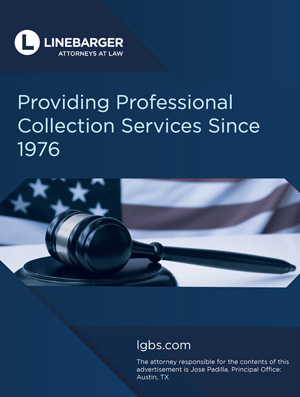Change is one constant in all our courts. Resistance to change is normal because change disrupts the current comfort zone. Change can undermine our need to feel appreciated, valued, and in control. One of the biggest changes a court can experience is switching to a new case management system (CMS). This change affects nearly all court employees. An expert in one CMS will be a newbie when a new case management system is implemented. But change is also an opportunity for growth. We can choose to see adversity as a challenge or an opportunity.
During a CMS conversion, courts should take things one step at a time by managing daily goals with the understanding that change is adopted differently. The employees that handle change better will be committed to the change and help others during the process. Those that feel comfortable and in control will be the ones that believed and participated in preparing for the change. Employees will be energized if they are included in change development and implementation. A large change, like a CMS conversion, should be implemented in phases. There should be a presentation on change and why it is needed to prepare the organization or team for the upcoming implementation.
During a recent conversion to a new CMS, the Buckeye (Arizona) Municipal Court sent half of their employees to view and experience the new CMS in action at another court. This allowed the employees to know more about the upcoming change before it happened. It also allowed the same employees to relay information to the other employees before the training for the new CMS. By sending the employees to experience the new CMS, they become change agents. These change agents brought information to the rest of the team and helped onboard others to the change.
Employees were able to ask “real” questions during the CMS training instead of just seeing the trainer show them what to do. By asking “real” questions, the employees were able to learn more about the functionality of the new CMS, instead of just watching and practicing what is in the training program. This example allowed the court staff at the Buckeye Municipal Court to better transition to the new CMS and learn much more in-depth knowledge of the new software.

To prepare employees for change, training is a valuable option. The supervisor or manager must determine the employees’ strengths and use resources to build upon them. This can be accomplished by developing employees through carefully planned and focused training.
Step 1—Sit with Your Employees
Take the opportunity to sit with your employees, especially when starting a new lead or other managerial position, when new employees are hired, when major changes in the organization present themselves, or when new tasks are assigned within a unit.
Step 2—Talk with Your Employees
Ask staff questions about their goals, such as “What are your goals for the future?” Discuss their goals, both professional and personal. Ask them, “What professional training would improve your job performance?”
Step 3—Empower Your Employees
The supervisor empowers employees by letting them decide on the direction they want to go. The supervisor can provide encouragement and show by example that it can be done.
Step 4—Provide Your Employees the Resources to Succeed
After a thorough evaluation of employees’ goals in conjunction with the organization’s goals, the supervisor can gather a list of resources they will need to achieve their professional and personal development goals. The supervisor can show commitment to the employees by preparing a work schedule to allow for training and development opportunities.
Training and taking steps to prepare for change and adversity will allow your organization to be successful in facing the challenges ahead. Being committed to your employees with carefully designed training and personal development will create professional employees committed to the vision and mission statements of your organization.
ABOUT THE AUTHOR

Johnny Tse is the court administrator for the Buckeye (Arizona) Municipal Court. He has been working at the Buckeye Municipal Court since 2015. Johnny also serves on the NACM Communications Committee, the Arizona Supreme Court Judicial Staff Education Committee, and the Defensive Driving School Board. Previously, he worked at the Pinal County Superior Court (Florence, Arizona), Mohave County Superior Court (Kingman, Arizona), Flagstaff Municipal Court (Flagstaff, Arizona), and the Maricopa County Justice Courts (Phoenix, Arizona). He is a Fellow of the Institute for Court Management.



